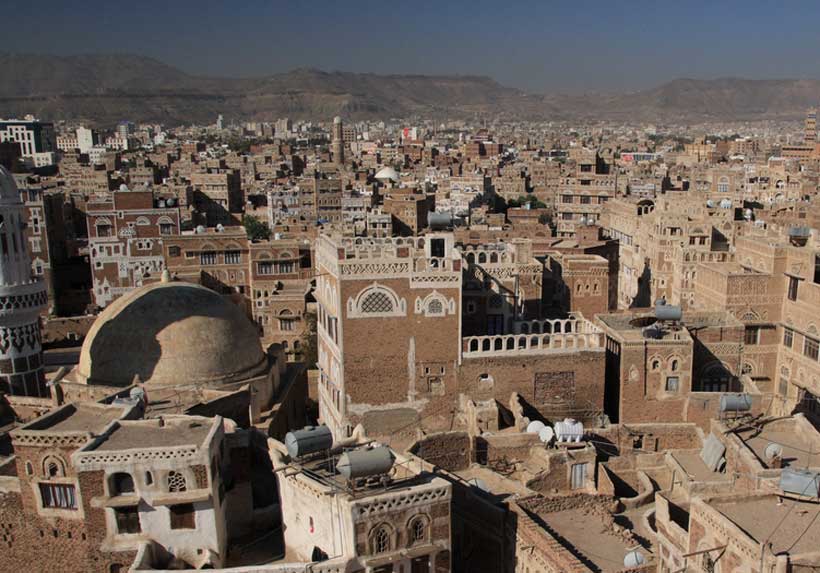Since taking office on January 20, US President Joe Biden has made a priority for Yemen and appointed Tim Linderking as the US special envoy to Yemen to seek an end of the war that has been going on for more than six years, which made Yemen live “the worst humanitarian crisis in the world”, as described by the United Nations.
Nearly four months after his appointment as a special envoy to Yemen, and after several visits to the region, and several meetings through Omani coordination with representatives of the Houthi movement in Muscat, Linderking returned to the United States empty-handed, announcing that the Houthis are responsible for the failure of the ceasefire to take hold in Yemen. The US State Department said “While there are numerous problematic actors inside of Yemen, the Houthis bear major responsibility for refusing to engage meaningfully on a ceasefire and to take steps to resolve a nearly seven-year conflict that has brought unimaginable suffering to the Yemeni people”.
Two days only after the US State Department statement, which blamed the Houthis for the failure of the peace process in Yemen, an Omani delegation from the Royal Office arrives in Sana’a. What are the goals behind their visit to Sana’a, and will the Omani efforts be crowned with success?
Houthi spokesman Muhammad Abdul Salam said that “the visit of a delegation from the Omani Royal Office to Sanaa is to discuss the situation in Yemen, arrange the humanitarian situation, and advancing the peace process”. However, observers considered that the delegation carried an American message to the Houthi leader as a last attempt to pressure the Houthis to accept a ceasefire, and to continue the peace efforts being made to end the war and achieve peace, especially after the failure of all intensive efforts in the past days by the United Nations and the United States of America to reach a ceasefire as a minimum requirement for peace.
Oman was the only country in the Gulf Cooperation Council that decided not to participate in what was called “Operation Decisive Storm”, led by Saudi Arabia following its consistent policy of non-interference. Due to its positive role since the beginning of the crisis and its standing at the same distance from all the conflicting local and regional parties in Yemen, it has become the only qualified and trusted party by all the conflicting parties, who view it as a neutral side that has no interest in further fighting and fragmentation.
On the local level, Oman enjoys the respect and trust of the Houthis, who have embraced them and their negotiators for years and provided them with a political platform and a point of contact with the international parties concerned with solving the Yemeni problem, as well as embracing other political parties loyal to the legitimate government, especially those who had a different position to the Saudi-Emirati agenda during the last period.
At the regional level, Oman maintains strong historical relations with the Iran, and it is a member of the Gulf Cooperation Council, and this feature enables it to bring the views between the two sides closer to reach a ceasefire and ending the Yemeni crisis that has raved the region for several years as a proxy war between the regional rivalries Saudi Arabia and Iran.
Oman now possesses the trust and respect of all local, regional and international parties, who resorted to it recently and they are all pushing to reach a ceasefire and ending the crisis, after they have reached a conviction that it is useless. So the Omani delegation’s public visit to Sana’a has great connotations and an important indication of the determination of all parties to reach breakthrough in the Yemeni crisis.
The international community, led by the United States, is now looking forward to stop the war in Yemen. Saudi Arabia also is looking for an end to the war that cost the kingdom a lot and it is already presented an initiative to end the Yemeni crisis, as well as Iran’s preoccupation with its nuclear program and lifting of sanctions.
Likewise, the conflicting local parties reached a firm conviction that military resolution is futile, especially after the Houthis’ failed attempt for several months to control Marib Governorate the rich of oil and gas and the last strongholds of the government in the north, which would have changed the balance of power in the region as a whole.
Despite the ambiguity that is still surrounding the results of the Omani delegation’s visit to Sana’a so far, there is great optimism to reach a cease-fire and alleviate the humanitarian crisis and other measures that pave the way for entering into the political track to solve the Yemeni crisis.
The situation in Yemen is very complicated and the final solution is still far away, but reaching a ceasefire and the start of negotiations may be a sign of hope and a point of light in the dark tunnel of Yemenis who have suffered for years from the curse of this war and its devastating effects.






